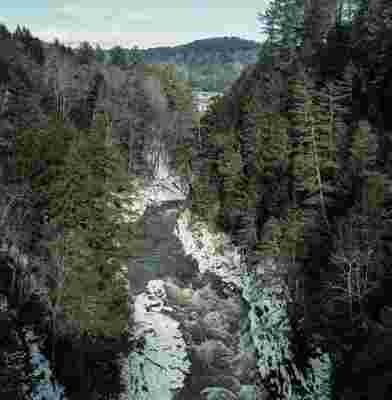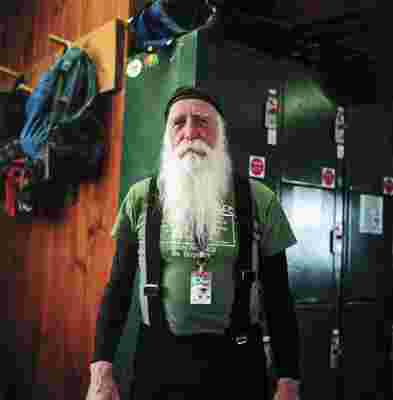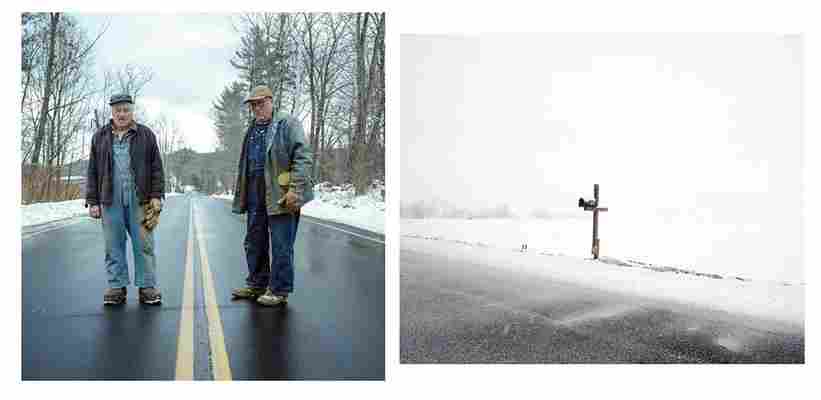
For much of my adult life, I’ve lived in the country Robert Frost called “north of Boston.” There were seven years in New Hampshire, now 36 in Vermont. And I feel pretty sure I’ll end my days surrounded by small villages, isolated farms, stands of maple and spruce, snowy fields, dry stone walls, cold running brooks, and lots of reticent people whose conversation often doesn’t run beyond “yep” or “nope.” To say I’m glad to live in this world is an understatement. This is home.

It was reading Frost’s “Stopping by Woods on a Snowy Evening” when I was 15 that set me on the path that led to my adult life—I eventually became his biographer. I’ll never forget being stunned by these lines in that poem, which features a lonely man, a horse-drawn sled, and the dark and deep woods that surround him: “The only other sound’s the sweep / Of easy wind and downy flake.” I fell in love with that voice, so lyrical and centered, and begged my parents to take a vacation in Frost country, and they generously agreed. We packed up the car in Pennsylvania and drove to New Hampshire and Vermont to have a look around. Needless to say, the landscape spoke to me, and it still does. In fact, it has become a conversation of sorts: I speak back to it as well, writing poems that reflect the world around me.

For me, poetry is always language adequate to experience, and this seems especially true of Frost and the images he summons in his poems. Probably the best of his poetry moves through the seasons, which he takes to represent the seasons of the soul. We move from the “hushed October morning mild” of “October” to the almost terrifying silence of the winter fields, with lonely mailboxes and fences, with the odd truck on a country lane, or the intense beauty of leafless trees, their limbs black against the white sky, to the immense emptiness of a snowy day, when there are no tracks anywhere: just the blank slate waiting to be filled in whatever ways life that day will afford. The winter deepens inside and out, as Frost suggests in “Desert Places” : “I have it in me so much nearer home / To scare myself with my own desert places.”
Spring, as Frost says, “is the mischief in me,” as in “Mending Wall” where he “walks the line” with his neighbor to repair the dry stone wall that separates their properties. And in the beautiful “Spring Pools,” which might well be Frost’s finest poem, he talks about the mirrors of water from melted snow that reflect the sky “almost without defect.” These pools chill and shiver in the woods as the oak and maple, beech and birch, all soak up the liquid “to bring dark foliage on.” These symbolic pools have a power in them as they set in motion a process of transformation that leads, at last, to the glories of summer.
And summer, for Frost, is a season when we experience “the heat of the sun” in meadows and uncut fields, a season of flowers by the roadside, a season of birdsong. “Mid-summer is to spring as one to ten,” he says in “The Oven Bird,” one of my favorite poems. It’s the high point in life’s cycle. And yet buried in its midst one senses the end of summer, “that other fall we name the fall.” The oven bird is a warbler that sings, like the poet, of the passing of all good things “The question that he frames in all but words / Is what to make of a diminished thing.”
My life mirrors Frost in so many ways. I live in a farmhouse that dates to 1850, a house where the hired hands from the nearby farm lived in the late 19th century. Along the way this became a family house. What’s strange is that so little has changed here. The imagery of my life is the imagery of Frost’s poetry, and—like Frost himself, who lived nearby—I like walking in the woods in every season. A clarity is found in the silence and beauty of these woods, when one drinks in the surroundings. “Here are your waters and your watering place,” he writes in the last lines of “Directive,” saying: “Drink and be whole again beyond confusion.”
